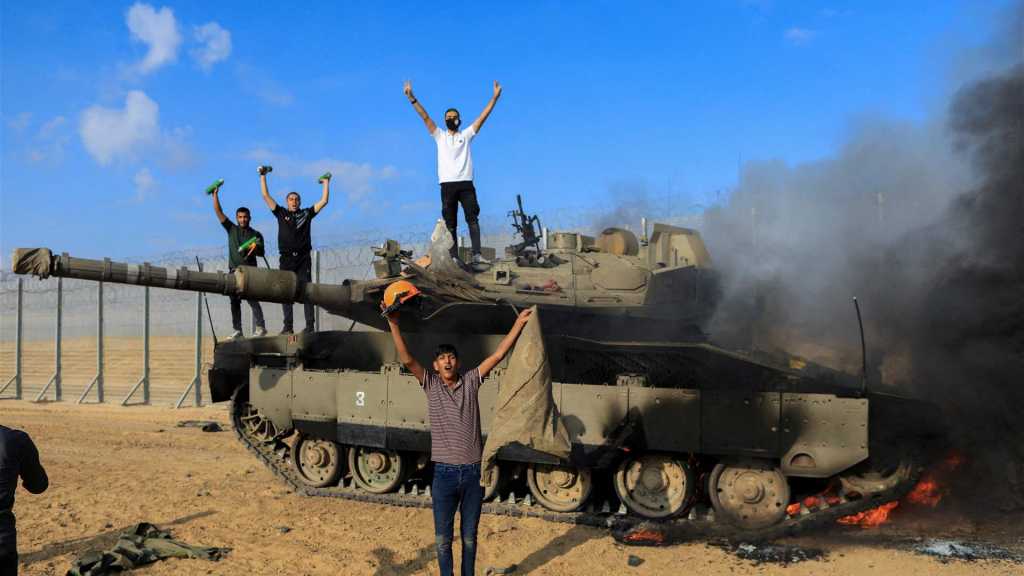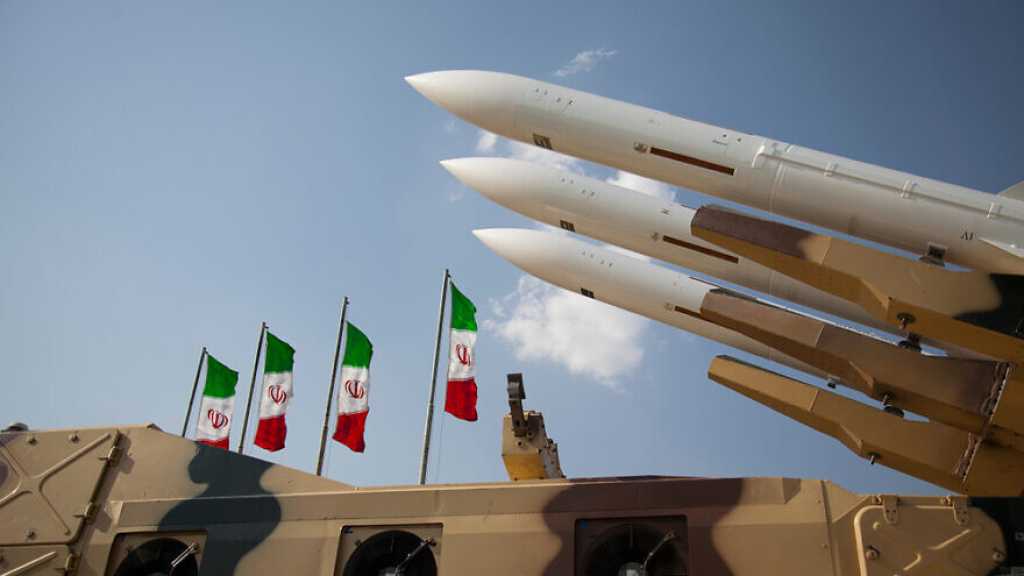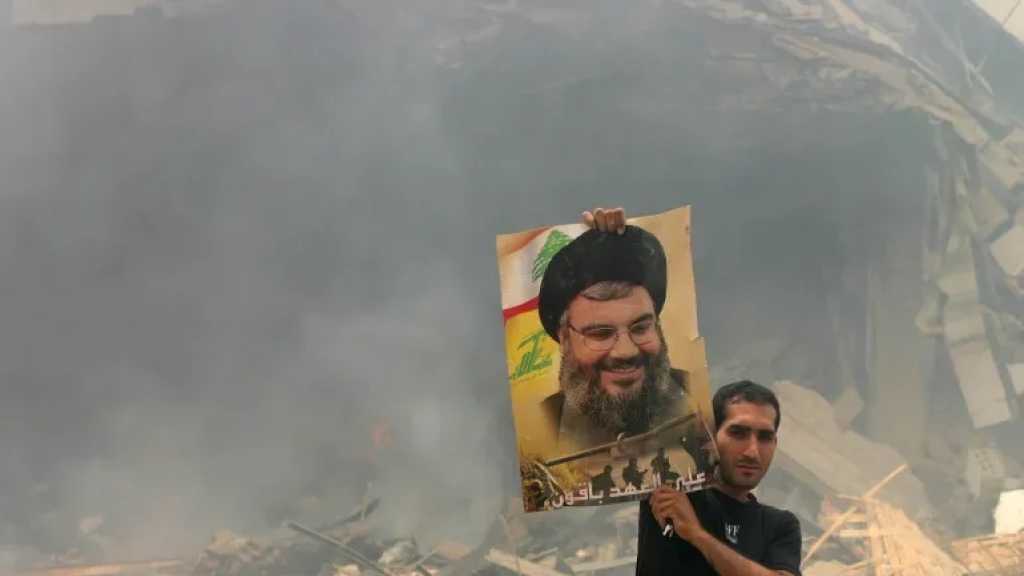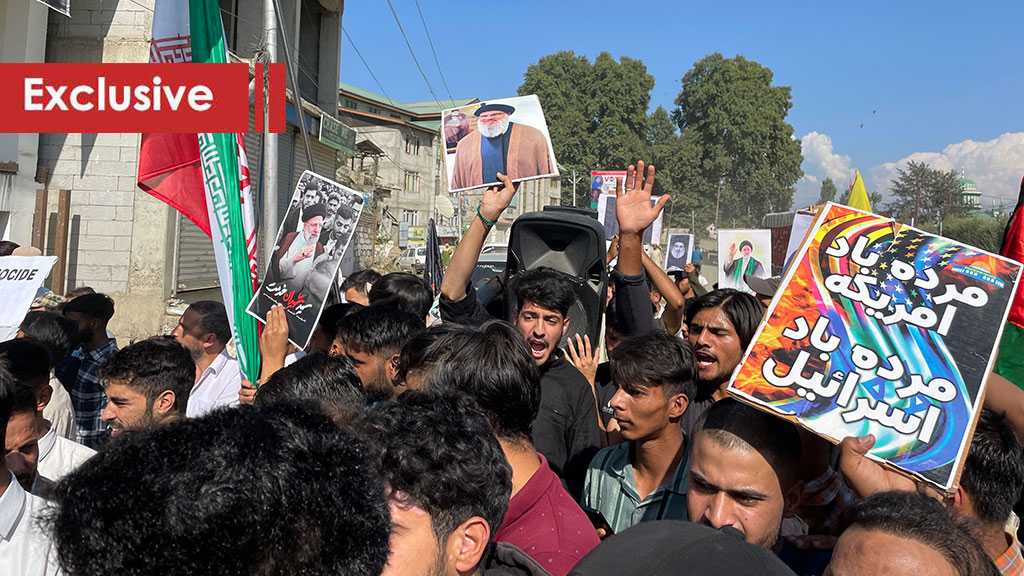The Resurrection of the Palestinian Cause: Al-Aqsa Flood

By Mohamad Hammoud
Lebanon – The “two-state” solution was pronounced dead, buried under layers of neglect, while the “Israeli” government enjoyed prosperity. The Abraham Accords effectively supplanted the quest for the “two-state” solution, leading “Israel” to feel less urgency in pursuing peace negotiations with the Palestinians.
As Arab nations raced to normalize relations with “Israel” and form alliances against their newly found adversary, Iran, the Palestinian cause seemed to fade into the background. Recognizing this predicament, Palestinians felt compelled to take action to resurrect their cause, understanding that freedom often demands sacrifices.
Thus, the Al Aqsa Flood was initiated on October 7, 2023, marking a significant turning point for “Israel” both internally and globally. The unprecedented offensive by Palestinian forces that day sparked a chain reaction, deeply affecting “Israel’s” economy, military and global image. This essay aims to explore these impacts while acknowledging the context of the Palestinian struggle, which is crucial for understanding the events that unfolded on that fateful day.
Why October 7th Happened
To grasp the events of October 7, it is essential to view the situation through the Palestinian lens. Years of suffering endured by the Palestinian people have cultivated a profound sense of hopelessness and desperation. Since the establishment of “Israel” in 1948, Palestinians have faced dispossession, occupation, and systemic inequality. The Gaza Strip, home to over two million Palestinians, is often described as the world’s largest open-air prison, where restrictions on movement, economic deprivation, and the enduring military presence fuel bitterness and resentment. Under blockade since 2007, Gaza has been isolated from the rest of the world, resulting in dire humanitarian conditions. The lack of access to basic resources such as clean water, electricity, and medical supplies has left Palestinians in Gaza in a state of constant suffering.
The Abraham Accords, signed in 2020, normalized relations between “Israel” and several Arab countries but failed to address the fundamental issue of Palestinian statehood. For many Palestinians, the accords represented a betrayal, allowing “Israel” to sidestep the Palestinian issue while forging alliances with Arab states. Consequently, international pressure on “Israel” to negotiate a “two-state” solution diminished, with numerous “Israeli” officials openly declaring the need for such a solution to be obsolete.
Confronted with escalating injustices and increasing desperation, Palestinians felt compelled to respond. The actions taken on October 7 were driven not merely by the urgency of their suffering but by their perception that their national identity and rights were being systematically erased from the geopolitical narrative. The overwhelming sentiment among Palestinians has been one of loss, particularly as they witnessed dwindling global support for their cause—especially as traditional allies engaged in normalization efforts with “Israel”, further sidelining their aspirations for statehood. For Palestinians pushed to the margins of international discourse, the attacks symbolized a desperate plea for attention to their plight and a firm rejection of the status quo. Their land continued to shrink under the relentless expansion of “Israeli” settlements, and their hopes for a viable Palestinian state appeared increasingly unattainable.
The Impact on “Israel’s” Military
For decades, “Israel’s” military has been regarded as one of the most formidable forces in the region. With advanced technology, well-trained forces, and a reputation for strategic superiority, “Israel” presented itself as a regional power capable of defending itself and its new Arab allies. However, the attack on October 7 exposed vulnerabilities in “Israel’s” defense systems that were previously overlooked.
The sheer scale of the assault, coupled with continued missile threats from Gaza and Hezbollah in Lebanon, has stretched “Israel’s” military capabilities to their limits. While the Iron Dome and other missile systems have intercepted many incoming rockets, the volume and intensity of the attacks have overwhelmed these defenses, depleting “Israel’s” resources at an unsustainable rate.
As a result, “Israel” has increasingly turned to the United States and its Western allies for military assistance. This dependency has included the provision of intelligence, ammunition, and support in intercepting missiles from Hezbollah and Iran. The reliance on external powers challenges “Israel’s” image as a self-sufficient military force capable of protecting itself and its regional allies. Now, “Israel” itself is seeking protection and assistance, highlighting the limitations of its military capabilities in the face of sustained conflict.
The Economic Fallout
Before October 7, “Israel's” economy was thriving. Years of steady growth, technological innovation and strong foreign investment had positioned “Israel” as a leader in the global economy, particularly in sectors such as technology, military and medicine. However, the strikes have triggered an economic downturn that is already having severe repercussions.
Businesses across the entity, especially in conflict-affected areas, have shut down, resulting in significant economic losses. Consumer confidence has plummeted, exacerbating financial instability. Tourism, a key pillar of “Israel's” economy, has virtually collapsed as visitors steer clear of the conflict zone. Investors who once viewed “Israel” as a stable environment for growth are now pulling out, leading to sharp declines in the stock market and a downgrade of “Israel's” credit rating. This economic instability could have lasting consequences for the entity’s fiscal policy and ability to attract foreign investment.
Furthermore, the long-term damage to “Israel's” business environment is profound. Global companies, once eager to establish a foothold in “Israel”, are reconsidering their presence due to the ongoing instability. The disruption of supply chains, delays in production, and increased security risks have forced many businesses to reassess their operations. “Israel's” economy, once a model of success in the region, is now degrading under the weight of conflict and uncertainty.
“Israel's” Tarnished Global Image
“Israel’s” international standing, already contentious due to its policies toward Palestinians, has suffered a significant blow since October 7. While some countries continue to affirm “Israel’s” right to defend itself, a growing number of nations are distancing themselves. In Europe and elsewhere, calls for boycotts of “Israeli” products and investments have gained momentum, driven by concerns over the humanitarian toll of “Israel’s” military response to the Palestinian strikes.
The rise in anti-“Israel” sentiment has also been accompanied by a resurgence of anti-Semitism in some parts of the world, further complicating global discourse. Pro-Palestinian protests have erupted in cities worldwide, with many demanding stronger international sanctions and divestment from “Israeli” companies. “Israel”, long seen by its allies as a “democratic” entity in a “hostile” region, is increasingly viewed as an occupier and aggressor in the eyes of global public opinion.
This shift in perception is particularly striking given the diplomatic gains “Israel” made through the Abraham Accords. These agreements, hailed as a breakthrough in Arab-“Israeli” relations, normalized ties between “Israel” and several Arab nations. However, the events of October 7 have reignited support for the Palestinian Cause, uniting much of the Arab and Muslim world in condemnation of “Israel's” response. Some countries are now reevaluating their diplomatic relations with “Israel”, signaling a potential unraveling of the fragile alliances built through the accords.
Conclusion
The events of October 7, 2023, have dramatically altered the landscape of the “Israeli”-Palestinian conflict. For Palestinians, the offensive represents the resurrection of their cause—a powerful statement against years of suffering, marginalization and occupation. Their actions, driven by the enduring hardships of life under “Israeli” control, have brought renewed attention to their struggle for statehood and dignity.
“Israel”, meanwhile, is facing unprecedented challenges. Its economy is deteriorating, its military is strained, and its global image is increasingly tarnished. The conflict has revealed the fragility of “Israel’s” position in the region, undermining the perception of its invincibility and self-sufficiency. As the world watches the fallout from the Al-Aqsa Flood, it is clear that the Palestinian Cause has been resurrected, and the global community is once again forced to confront the need for a just and lasting resolution to their struggle. Peace and stability in the region cannot be achieved without addressing the deep-rooted grievances of the Palestinian people.




